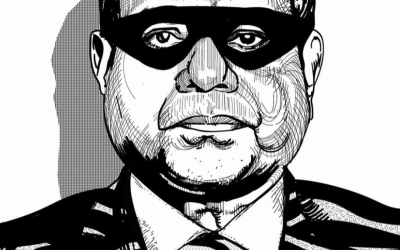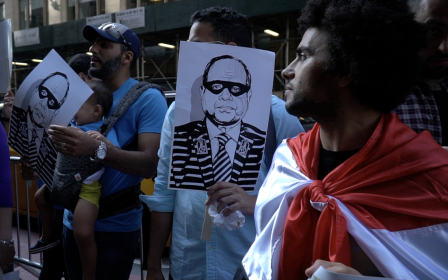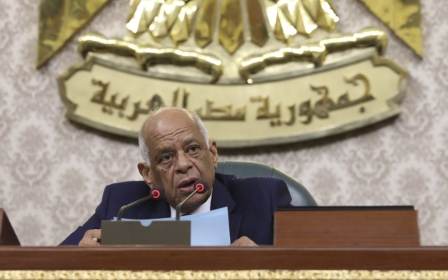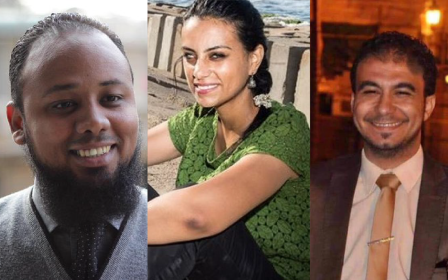Egyptian activist 'abducted' days after livestreaming unsuccessful arrest attempt

Haitham Wagih Abu Tawila became a minor celebrity in Egypt after livestreaming the police's unsuccessful attempts to raid his home. Now, however, he has gone missing.
Egyptian housing activist Abu Tawila was “kidnapped in front of his home” in the northern city of Port Said on Wednesday evening, his lawyer Mohamed Ali Amer announced on Facebook, adding that he has filed a complaint with authorities to locate his client.
Abu Tawila is the coordinator of a local civil society group in Port Said advocating for the rights of young people unable to secure affordable housing due to alleged corruption by government officials in charge of implementing the projects.
On Tuesday, before his disappearance, Abu Tawila announced on his Facebook page that he had filed a lawsuit against the governor of Port Said, Lt. Gen. Adel al-Ghadban, and the housing minister, accusing them of failing to deliver a project worth 233 million Egyptian pounds ($14.2m), which was allegedly paid for by local young people seven years ago.
“It has been proven that standing up to the centres of power, exposing corruption and stopping it and holding onto your principles, come with a high price,” he said in a post.
New MEE newsletter: Jerusalem Dispatch
Sign up to get the latest insights and analysis on Israel-Palestine, alongside Turkey Unpacked and other MEE newsletters
A day later, he accused the governor of “seeking to please some centres of power who benefit from corruption” and threatened to publish documents showing “how things are run in Port Said under the administration of governor Ghadban”.
He also said they show “how trumped-up charges are brought against honourable non-political individuals merely to deter them from opposing him”.
Viral video
Abu Tawila first resisted an attempt by five plain-clothed police officers to arrest him at dawn on 27 September. He livestreamed his encounter with the officers who were trying unsuccessfully to enter his flat.
The policemen managed to tear down his wooden door, only to be met with a metal security gate they could not get past.
In the 25-minute Facebook video that went viral, Abu Tawila could be seen refusing to open the security gate, asking the officers to provide him first with their IDs and an arrest warrant.
The officers did not provide a warrant or disclose their identities, saying that they did not intend to arrest him.
However, Abu Tawila accused them of attempting to abduct him, questioning why they came to talk to him after midnight.
When he tried to show their faces in the video, the officers smashed the lights outside the flat seemingly to hide their identities.
The policemen, whose car was parked outside of the housing block, left after failing to convince the activist to open his door.
Following the incident, Abu Tawila said he was not wanted by any security services on any formal charges, and that the incident was “a tool to deter me from demanding my right to housing in my capacity as the coordinator for the victims of the Port Said housing case”.
He said he had filed a complaint about the incident with the attorney-general, the presidency and the speaker of parliament.
Abu Tawila’s disappearance comes amidst a crackdown on anti-government protesters, who took to the streets on 20 and 27 September demanding an end to the rule of President Abdel Fattah el-Sisi after a whistleblower levelled accusations of large-scale corruption against him.
More than 2,000 protesters and outspoken anti-Sisi activists have been rounded up in the crackdown.
Middle East Eye delivers independent and unrivalled coverage and analysis of the Middle East, North Africa and beyond. To learn more about republishing this content and the associated fees, please fill out this form. More about MEE can be found here.





